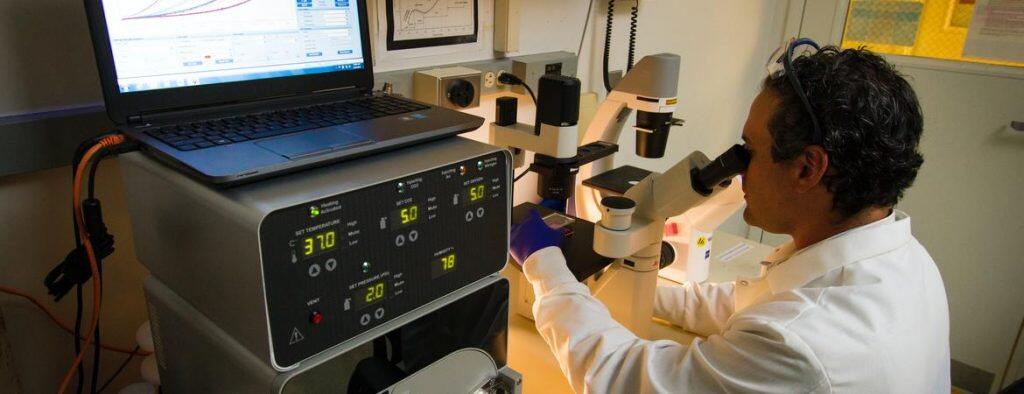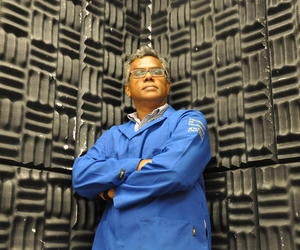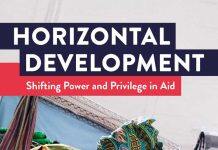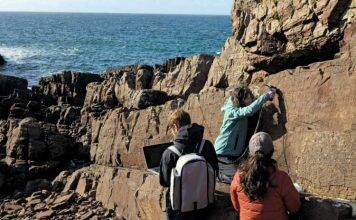UC Riverside’s Khaleel Razak and Frances Sladek receive grants from the University of California-Hispanic Serving Institutions Doctoral Diversity Initiative


Faculty at the University of California, Riverside, have received grants from the University of California-Hispanic Serving Institutions Doctoral Diversity Initiative, or UC-HSI DDI, to increase diversity in the sciences.
Khaleel Razak, a professor of psychology, has received funding of nearly $50,000 for a project titled “Increasing Faculty Diversity in Neuroscience.”
The grant will allow Razak to establish specific programs through the Neuroscience Graduate Program at UCR to actively recruit, engage and mentor students from Hispanic Serving Institutions, or HSIs, to open pathways to faculty positions in neuroscience.


“These programs will expand exposure of the UCR Neuroscience Graduate Program at three designated HSIs, provide head-start professional development for HSI alumni admitted to the graduate program, and provide ongoing professional development programs catered to the specific stage of training,” Razak said. “Our long-term objective is to increase diversity and the pathways to the professoriate in neuroscience. At the institutional level, the long-term goal is to serve as a paradigm for broader implementation across multiple STEM fields on campus.”
The two-year grant is a partnership between the undergraduate neuroscience program at UCR with California State University-San Bernardino and California State University-Dominguez Hills. Razak plans to introduce direct faculty interactions with the California State universities.
“Our goal is to increase the pathway to a UC doctoral degree by encouraging students to apply to UCR from HSIs and exposing them to faculty research and life in academia,” Razak said.
Frances Sladek, a professor of molecular, cell and systems biology and the divisional dean of life sciences at UCR, also received funding of $50,000 from UC-HSI DDI, for a project titled “Mentoring URM Science Students for the Professoriate Pilot Program.”
“This grant supports current underrepresented minority doctoral students in the College of Natural and Agricultural Sciences programs and will facilitate their progress toward academic careers,” Sladek said. “We hope to leverage our experiences with this grant to future applications that will involve partnerships with other HSI institutions.”
The grant to Sladek will facilitate mentorships between UCR faculty and doctoral students with the goal of increasing the diversity of the professoriate. The grant will also support professional development workshops for current UCR doctoral students and memberships in national conferences, such as SACNAS, dedicated to increasing diversity in STEM fields.
Recently, Byron Ford, a professor of biomedical sciences, received three-year funding of $269,000 from the University of California-Historically Black Colleges and Universities Initiative for a project titled “Pathway to Biomedical Science and Neuroscience.”
“While the undergraduate student population at UCR is quite diverse, this has not translated proportionately to the graduate programs on campus,” Ford said. “These grants will greatly increase the number of underrepresented students pursuing doctoral degrees at UCR and help diversify the scientific workforce in the country.”
While the grants to Razak and Ford work towards increasing the diversity of students entering graduate school, the grant to Sladek is geared towards ensuring UCR students already in doctoral programs successfully finish their degrees and are prepared to pursue academic careers.
“We expect our efforts will increase the diversity of the professoriate,” Sladek said. “We are all working to increase the diversity of graduate students, but at different points on the pipeline. Students who are just beginning graduate school should know that UCR is working to ensure they are supported while they are here.”
Header photo credit: National Cancer Institute.









































